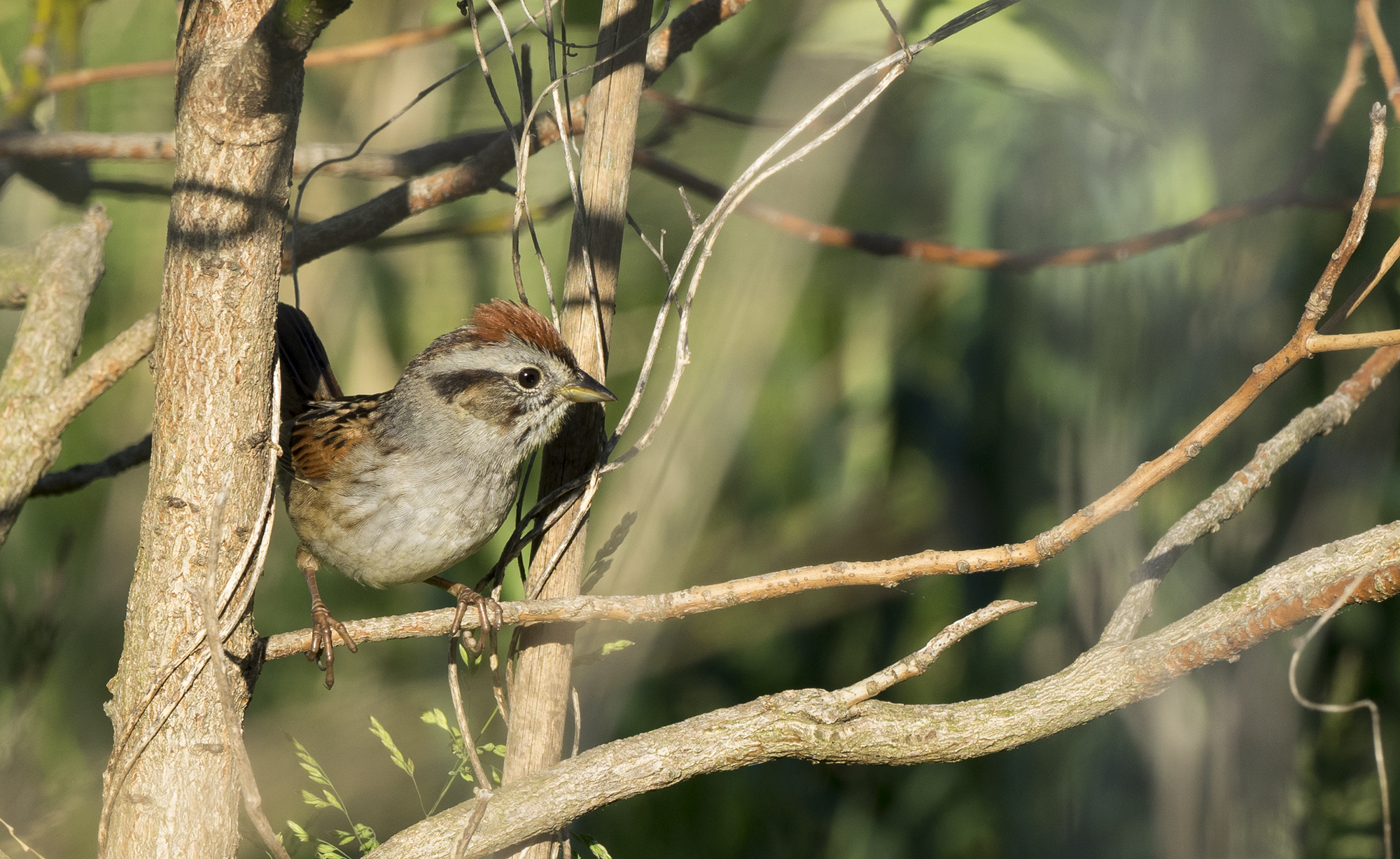Swamp sparrows can guess each other's ages from the sounds of their song
Researchers hand raised a flock of swamp sparrows, and used music playback experiments to see how wild males responded to different songs
By ethan.gosnell2 on Flickr
You pick up the phone and immediately categorize the voice on the other side — whether it's high pitched or deep, smooth or irritating, or if there's perhaps an accent or a quirky pronunciation. Magically enough, you can also estimate quite accurately if it’s the voice of a young, middle-aged, or older person. It turns out this phenomenon of guessing someone’s age by their voice is not exclusive to humans. In fact, swamp sparrows also do it.
Matthew Zipple, a biology graduate student at Duke University, set out to test a couple of hypotheses: whether older birds sing differently than younger birds, and if wild birds can spot these differences.
Firstly, it’s extremely difficult to determine a bird’s age in the field. Secondly, comparing young and old birds meant comparing completely different voices, not just different ages. How can you isolate the effect of age alone?
Enter a special flock of swamp sparrows (Melospiza georgiana), hand raised and followed by Duke University biologists Stephen Nowicki and Susan Peters.

A swamp sparrow sitting on a branch
By Andrew Weitzel on Flickr
Using songs recorded throughout these bird’s lives, Zipple and his collaborators showed that male songs peak in quality when birds are around two years old, then deteriorate over time, acquiring something of an old age signature. Older birds have less consistent songs and sing at lower rates than their younger counterparts.
Zipple and his team then presented these songs, young and old, to wild male birds. To do that, they placed speakers inside male birds’ territories and waited to see if the resident male would get upset over this intrusion.
These results, published in Behavioral Ecology in September 2019 and January 2020, demonstrate that humans are not the only ones who can tell age just by listening to someone’s voice. They also show that older birds seem to be less of a threat to other males, which is likely to mean that they are not as attractive to females as their young selves.
Fewer mates, but less aggression? Sounds like an okay way to grow old.





















